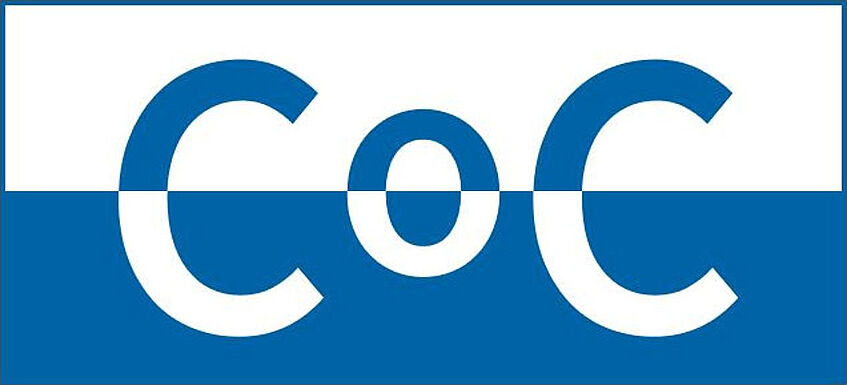
Code of Conduct
of
the Faculty of Mathematics
1. Preamble
The Faculty of Mathematics of the University of Vienna is committed to an organizational culture that ensures everyone meets with respect and on equal terms. The dignity and integrity of each person must always be preserved in the same way, irrespective of whether they work in research, teaching, administration, or study; and of at what level they do so. Hierarchical differences are limited to functional aspects; the rights and obligations associated therewith are clearly regulated. This is a central factor for a prosperous human and professional cooperation.
The Faculty of Mathematics strives to be a place of diversity and equal opportunities, free of discrimination and prejudice of any kind. In its diversity it sees the challenge as well as the opportunity to recognize and promote the potential of each person and thus to increase the quality of research and teaching.
This Code of Conduct (CoC) is a guide that establishes ethical and legal guidelines for personal interaction at the Faculty. The CoC obliges all members of the Faculty - general and scientific staff, lecturers, and students - without distinction.
2. Respect for Personal Dignity
Respecting the dignity and integrity of each person is fundamental to any interpersonal encounter. This requires an attitude of mutual recognition, respectful interaction with each other, respecting personal boundaries and politeness in interactions without threatening gestures. The Faculty and all its members are constantly tasked with shaping such interaction with each other and to constantly make progress while at the same time reflecting critically on societal changes.
In order to achieve a sustainable culture of mutual respect, the Faculty must create structures that enable this attitude in everyday professional and student life. To this end, the Faculty takes appropriate ideational, personnel, organizational and structural measures, and supplements this program with measures towards diversity, inclusion and equal opportunities that go beyond the legally stipulated framework on anti-discrimination. In this way, the Faculty also lives up to its mission of excellence, because only an atmosphere of respect and appreciation will lead to complete personal and work-related development.
3. Hierarchies and Responsibility
A study and work environment in which the dignity of each person is respected is based on the conviction and commitment of all Faculty Members. In this respect, the personal responsibility varies depending on the agency of the respective Faculty Members: a hierarchically higher position increases the risk of abuse of power and therefore requires continuous reflection on one's own role and a self-critical approach to the respective relative position.
The respective managers, for example Faculty Leadership, project leaders and course lecturers, do have particular obligations: They have to act as role models and also have a legal obligation to provide appropriate remedies against assault - both preventively and in response to events. The managers fulfil this task by generally communicating to the Faculty Members which standards are to be respected and by intervening quickly in cases of concrete attacks and conflicts in order to protect potential victims, to examine the incident and overcome the situation. Correct procedures and transparent communication are of central importance in this regard.
4. Legal Requirements
The relevant legal regulations prohibit harassment on the basis of gender, ethnicity, religion or belief, age, sexual orientation, and disability; they also prohibit bullying.
Harassment is discrimination. All Faculty Members have the subjective right not to be discriminated against*. Whether a behavior violates personal dignity depends on how the affected person perceives it. Faculty Members who discriminate are held responsible within the provisions of the legal framework – in serious cases this can lead to exclusion from the University.
It goes without saying that physical violence is prohibited. It is, however, important to additionally note that the range of illicit assaults includes much more: they range from physical assaults to verbal attacks and threats to facial expressions or gestural contempt. Alcohol consumption reduces the inhibition threshold for inappropriate behavior and is never a justification or relativization for such behavior. It therefore has no place in the context of everyday work. In addition to the consequences under labor law, assaults can also lead to criminal penalties.
5. Contact Persons and Contact Points
The contact points in cases of harassment are the Equal Opportunities Working Party, the immediate supervisor as well as the Member of the Dean’s Team in charge. Crisis management must be based on what kind of support the person concerned wants. The contact persons involved must treat the information received as confidential and ensure that their course of action does not violate the rights of others. Persons who report violations of the CoC to the best of their knowledge and belief must not be sanctioned or disadvantaged in any way.
*see §8, §8a: RIS - Bundes-Gleichbehandlungsgesetz
The English version of the text is for informational purposes only. The only legally binding version is the ➥German version published here.
